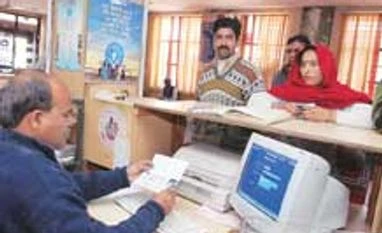The government-driven exercise to consolidate public sector banks (PSBs) is likely to run into problems. Beside issues with organisation integration, there is strong opposition from employee unions.
While mergers take care of accounting, legal and regulatory requirements, the banks face challenges of wages and compensation fitment, culture and systems and info technology platform integration, said experts and senior PSB executives.
And, the resistance from bank staff and employees unions and local political interest could pose a formidable challenge. C H Venkatachalam, general secretary, All India Bank Employees’ Association (AIBEA), said there is absolutely no case for consolidation. There is enough space for many banks to do business when half the population is yet come under the ambit of financial services, he said.
Earlier, mergers of commercial banks with public sector lenders was predominantly done at the behest of the Reserve Bank of India and the government. This was mainly to salvage a troubled bank and protect depositors’ interest. One prominent example of a private lender being merged into a state-owned bank was of the new-generation Global Trust Bank (GTB) with Oriental Bank of India. Hyderabad-based GTB landed in trouble due to aggressive lending often flouting prudential norms.
A second example is of United Western Bank (UWB), an older generation private bank, merged with IDBI Bank. UWB faced problems with a mounting bad loan book and maintaining the prescribed capital adequacy. It was thought that its wide network in the semi-urban and rural parts of Maharashtra would provide IDBI a footprint in building priority sector loans. The latter has had limited success in doing so.
Compared to mergers with PSBs, experts believe those of private sector banks, done more voluntarily, have been smoother. Shinjini Kumar, executive director, PwC, says when two lenders from the same sector are merged, there is an advantage.
“The upside in such cases is that both the parties will have a similar background, focus and structure. Therefore, the consolidation process is a little easier. However, any merger requires a very detailed plan and every merger has some or the other hiccup,” he added.
HDFC Bank's merger with Times Bank was smooth. To ensure this, an external human resource consultancy was hired to manage the people integration. ICICI Bank's merger with Bank of Rajasthan also had not met with many obstacles. BoR's acquisition helped ICICI strengthen its network in western and northern India. BOR was under the Reserve Bank of India's and the Securities & Exchange Board of India's scanner at the time and the merger was a bailout for it.
While mergers take care of accounting, legal and regulatory requirements, the banks face challenges of wages and compensation fitment, culture and systems and info technology platform integration, said experts and senior PSB executives.
And, the resistance from bank staff and employees unions and local political interest could pose a formidable challenge. C H Venkatachalam, general secretary, All India Bank Employees’ Association (AIBEA), said there is absolutely no case for consolidation. There is enough space for many banks to do business when half the population is yet come under the ambit of financial services, he said.
More From This Section
Adding that the unions will begin agitations against the move to merge some state-run banks with other larger ones. AIBEA will prepare detailed plans in early August, he said.
Earlier, mergers of commercial banks with public sector lenders was predominantly done at the behest of the Reserve Bank of India and the government. This was mainly to salvage a troubled bank and protect depositors’ interest. One prominent example of a private lender being merged into a state-owned bank was of the new-generation Global Trust Bank (GTB) with Oriental Bank of India. Hyderabad-based GTB landed in trouble due to aggressive lending often flouting prudential norms.
A second example is of United Western Bank (UWB), an older generation private bank, merged with IDBI Bank. UWB faced problems with a mounting bad loan book and maintaining the prescribed capital adequacy. It was thought that its wide network in the semi-urban and rural parts of Maharashtra would provide IDBI a footprint in building priority sector loans. The latter has had limited success in doing so.
Compared to mergers with PSBs, experts believe those of private sector banks, done more voluntarily, have been smoother. Shinjini Kumar, executive director, PwC, says when two lenders from the same sector are merged, there is an advantage.
“The upside in such cases is that both the parties will have a similar background, focus and structure. Therefore, the consolidation process is a little easier. However, any merger requires a very detailed plan and every merger has some or the other hiccup,” he added.
HDFC Bank's merger with Times Bank was smooth. To ensure this, an external human resource consultancy was hired to manage the people integration. ICICI Bank's merger with Bank of Rajasthan also had not met with many obstacles. BoR's acquisition helped ICICI strengthen its network in western and northern India. BOR was under the Reserve Bank of India's and the Securities & Exchange Board of India's scanner at the time and the merger was a bailout for it.
)